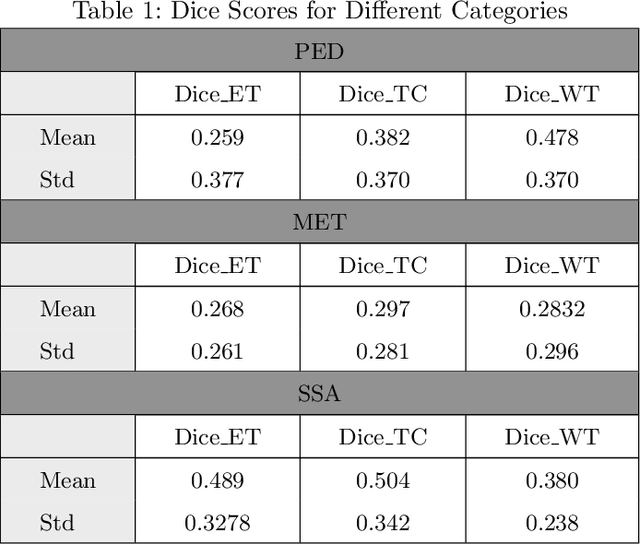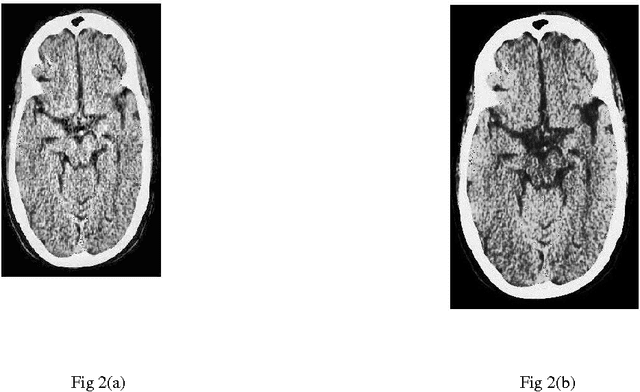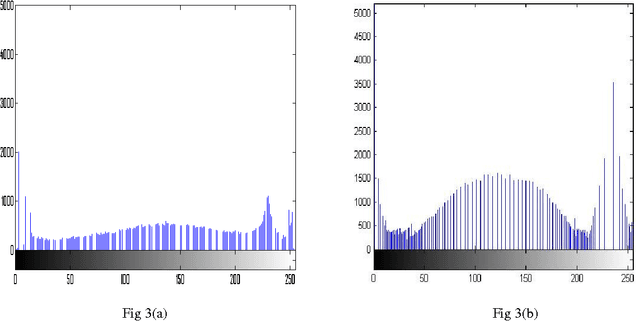Satyasaran Changdar
Fully Automated Tumor Segmentation for Brain MRI data using Multiplanner UNet
Jan 12, 2024

Abstract:Automated segmentation of distinct tumor regions is critical for accurate diagnosis and treatment planning in pediatric brain tumors. This study evaluates the efficacy of the Multi-Planner U-Net (MPUnet) approach in segmenting different tumor subregions across three challenging datasets: Pediatrics Tumor Challenge (PED), Brain Metastasis Challenge (MET), and Sub-Sahara-Africa Adult Glioma (SSA). These datasets represent diverse scenarios and anatomical variations, making them suitable for assessing the robustness and generalization capabilities of the MPUnet model. By utilizing multi-planar information, the MPUnet architecture aims to enhance segmentation accuracy. Our results show varying performance levels across the evaluated challenges, with the tumor core (TC) class demonstrating relatively higher segmentation accuracy. However, variability is observed in the segmentation of other classes, such as the edema and enhancing tumor (ET) regions. These findings emphasize the complexity of brain tumor segmentation and highlight the potential for further refinement of the MPUnet approach and inclusion of MRI more data and preprocessing.
Solution of Definite Integrals using Functional Link Artificial Neural Networks
Apr 21, 2019



Abstract:This paper discusses a new method to solve definite integrals using artificial neural networks. The objective is to build a neural network that would be a novel alternative to pre-established numerical methods and with the help of a learning algorithm, be able to solve definite integrals, by minimising a well constructed error function. The proposed algorithm, with respect to existing numerical methods, is effective and precise and well-suited for purposes which require integration of higher order polynomials. The observations have been recorded and illustrated in tabular and graphical form.
A comparative study between proposed Hyper Kurtosis based Modified Duo-Histogram Equalization (HKMDHE) and Contrast Limited Adaptive Histogram Equalization (CLAHE) for Contrast Enhancement Purpose of Low Contrast Human Brain CT scan images
Apr 07, 2015


Abstract:In this paper, a comparative study between proposed hyper kurtosis based modified duo-histogram equalization (HKMDHE) algorithm and contrast limited adaptive histogram enhancement (CLAHE) has been presented for the implementation of contrast enhancement and brightness preservation of low contrast human brain CT scan images. In HKMDHE algorithm, contrast enhancement is done on the hyper-kurtosis based application. The results are very promising of proposed HKMDHE technique with improved PSNR values and lesser AMMBE values than CLAHE technique.
 Add to Chrome
Add to Chrome Add to Firefox
Add to Firefox Add to Edge
Add to Edge